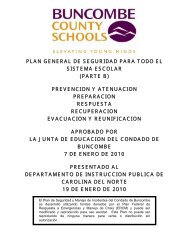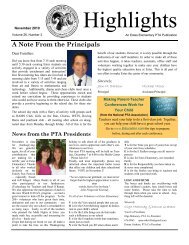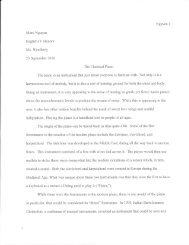Two Approaches To Adlerian Brief Therapy - Buncombe County ...
Two Approaches To Adlerian Brief Therapy - Buncombe County ...
Two Approaches To Adlerian Brief Therapy - Buncombe County ...
You also want an ePaper? Increase the reach of your titles
YUMPU automatically turns print PDFs into web optimized ePapers that Google loves.
<strong>Adlerian</strong> <strong>Brief</strong> <strong>Therapy</strong> 9<br />
well as the quality of the contact the client has with self, with others, and with<br />
the environments in which he or she lives. The constructs of awareness and<br />
contact are well defined within the work of the Gestalt therapists, Erv and<br />
Miriam Polster (1973, 1999). E stands for experience, which both flows from<br />
relationship and provides the interventions and transitions for therapeutic<br />
change. It is not uncommon for a focus on purpose, awareness, or contact to<br />
evolve into therapeutic interventions, strategies for change, experiments,<br />
enactments, or even homework, any of which may lead to the integration of new<br />
experiences in the client’s life.<br />
The question of what makes a new experience useful or even therapeutic<br />
can be addressed through another acronym, BURP, which has been described in<br />
greater detail by Nicoll et al. (2000). B stands for strategies related to behavioral<br />
descriptions. From an optimistic interest in presenting issues [“What would you<br />
like to see going better in your life?”] to recurrent patterns, <strong>Adlerian</strong>s focus on<br />
what people do, how they feel, and the results of these processes in interactive<br />
experiences. Such questions as “when was the last time this occurred?” or “what<br />
happens when you feel . . . ?” or “who is most affected when you feel . . . ?” focus<br />
the client on movement and process rather than helplessness.<br />
Individual purposes are often revealed in the responses that others have<br />
to what the client does. “I was depressed all the time at the university. When I<br />
went home, my parents took care of me, and I slowly got better. I don’t feel







